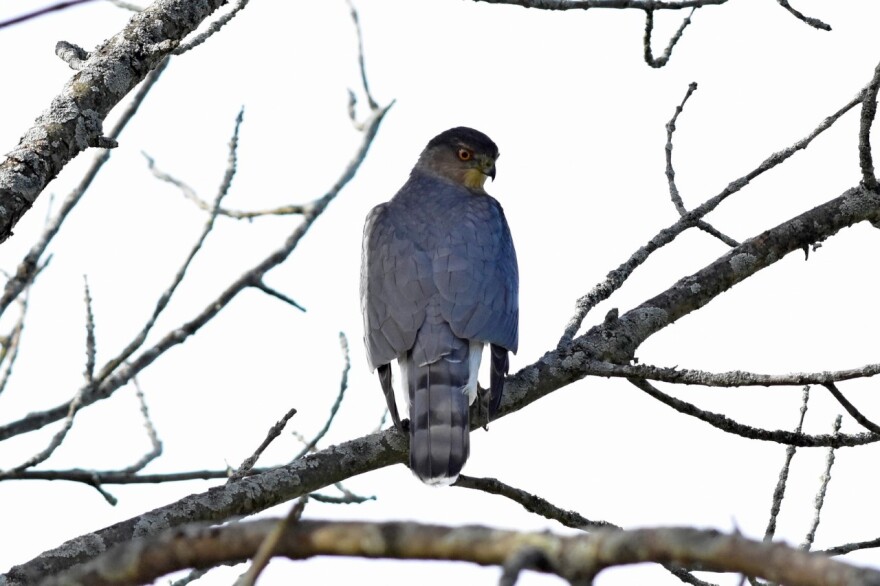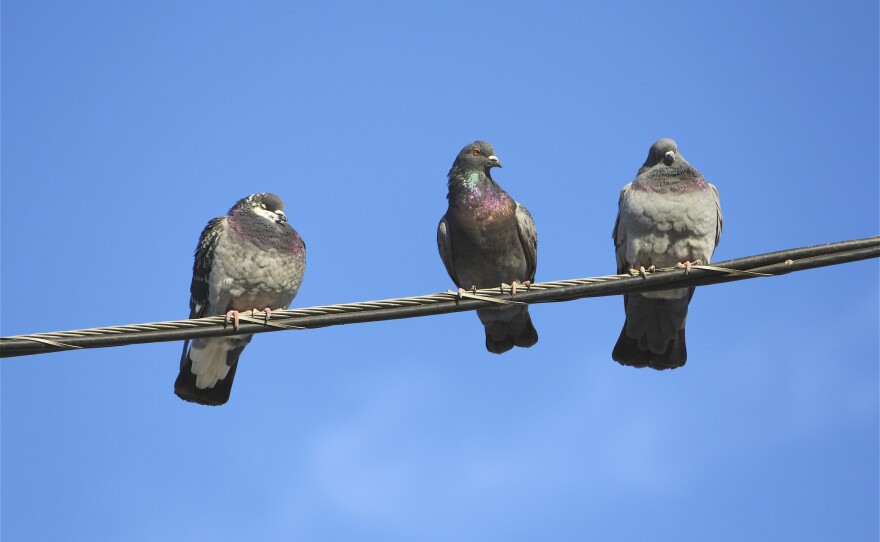Editor's note: This piece was originally published on April 21, 2017.
Phil Lapayowker has noticed a distinct lack of what some people unkindly call "flying rats" in Milwaukee.
"I was listening to a podcast and they were talking about animals in cities and stuff, and they ended with, 'Do you know what color a pigeon’s eyes are?' and I was like, I have no idea!" Phil says. "So, I’ll go look for one, or when I’m walking I’ll see one I’m sure. And I’ve never run into one in Milwaukee … I mean it’s kind of crazy, you go to other cities like Chicago and they’re everywhere."
So, Phil turned to Bubbler Talk and asked:
How come I don't see as many pigeons in Milwaukee as I do in other cities?
Once he brought it to our attention, we noticed the same thing. Or lack of thing, really. So, we called biologist and ornithologist Dr. Peter Dunn, who teaches at UWM. We asked Peter if he knew why Milwaukee pigeon sightings are few and far between.

Peter said at first he thought it was because Milwaukee is such a clean city in comparison. "Maybe I shouldn’t say this about Chicago or New York, but my impression is that walking through those downtown areas there’s a lot more litter and food waste that pigeons would find attractive to feed on."
But then he dug a little deeper. And while it is true that Milwaukeeans tend to leave less on the ground for pigeons to feed on, there are other reasons we don’t see very many here. One is there are fewer people breeding pigeons these days. Then there are the falcons.
"There’s been a huge increase in the some of the predators of pigeons since the early 1970s when DDT was banned," Peter explains. "We have Peregrines – five nesting sites of Peregrines around Milwaukee now so their numbers have increased. They didn’t used to breed in Milwaukee."
And don't forget about the Cooper's Hawks: those are the birds you see around the East Side quite a bit. They’re just flying between houses really low and checking out bird feeders.

So, as the pigeons try to avoid being dinner for the falcons and hawks, we asked Peter what other ecological purpose they play. It turns out pigeons are more or less avian janitors: "They’re pretty much dependent on humans. You don’t find them very often way out away from disturbed areas. They probably feed quite a bit on seeds that are found in livestock waste so they do have a role in cleaning up after us."
But people who research pigeons point out that they're not your typical bird brains, which is to say they're smart and highly evolved. They can recognize themselves in a mirror, for example. So, why do they have such a bad reputation with humans? Peter says it's probably (their) familiarity breeding (our) contempt.
"They can get pretty ugly looking when they're hanging around in the trash," he says. [Our trash, we point out.] "Yes. You can walk down the city streets of Chicago or New York and you can seem some with their feathers all matted with garbage and they haven't cleaned it off."
Yeah, that's pretty disgusting. Dodging their droppings isn't any fun either.

Armed with our newfound knowledge, we called Phil back to let him know he was right: There aren't that many pigeons in Milwaukee. But he was surprised to learn it was because of human encouragement of predators like falcons and hawks.
"Wow. That's like a cool cause and effect thing going on there," Phil says.
But the most important thing?
"I'm not crazy, at least not as far as pigeons are concerned. They still gross me out still, but that's very interesting," Phil says.
And so what will he tell his friends the next time he points out over a beer that there just aren't as many pigeons flocking about in Cream City?
"That I'm right," he smiles. "That's what I'm going to say. I'm not even going to explain it. I'm just going to say, 'I'm right, it's on the radio, it's official.' "
_









